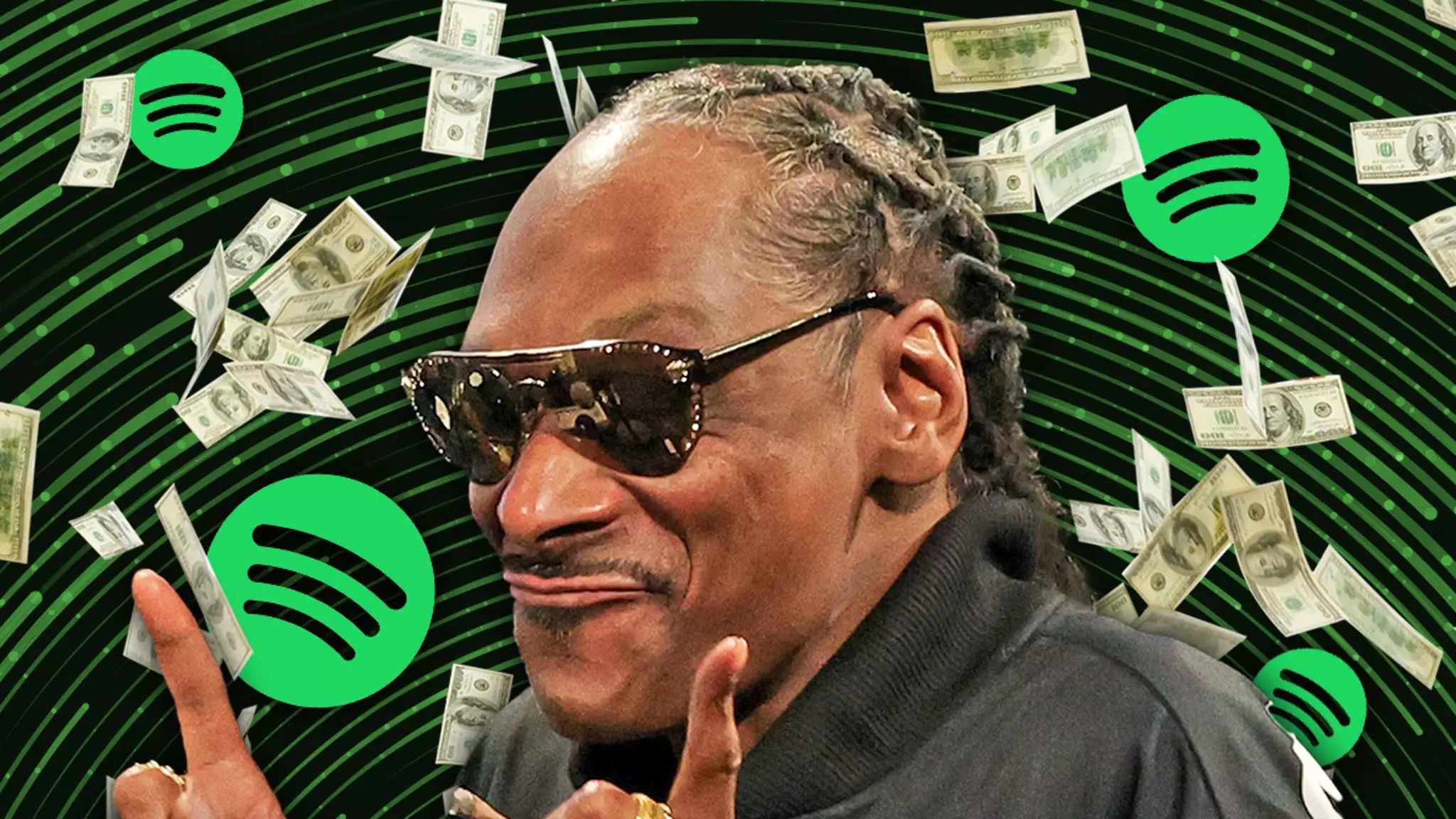Snoop Dogg, the iconic figure in the hip-hop industry, has long been a pioneer in blending musical genres and exploring new platforms for his art. Recently, Snoop made headlines when he criticized the income he reportedly earned from a billion streams on Spotify, asserting that he received a meager $45,000. This revelation, of course, raises questions not only about the financial dealings within the music streaming sector but also about Snoop’s decision to pivot towards Tune.FM—a Web3 music platform that aims to enhance artists’ earnings in the digital age.
Spotify has emerged as a dominant force in music streaming, yet Snoop’s statements cast a shadow on its payment structure. A spokesperson from Spotify responded to Snoop’s concerns by asserting that earnings from a billion streams typically amount to millions of dollars for rights holders. This contradiction highlights a potential miscommunication or mismanagement regarding how those revenues are distributed. Was Snoop’s management team unaware of the channels through which those funds flowed, or are there systemic issues at play that affect artists’ earnings?
In this digital era where streaming has become the primary means of consuming music, the financial compensation model remains a contentious issue. The disparity between what artists expect and what they actually receive can lead to discontent, as seen with Snoop Dogg’s revelations.
In light of these grievances, Snoop Dogg has taken a bold step by aligning himself with Tune.FM. This Web3 platform, often celebrated for its artist-centric approach, could provide an avenue for Snoop to regain control over his musical catalog and ultimately bolster his earnings. Following the announcement of this partnership, Snoop’s release of a new track—exclusive to Tune.FM but not yet available on Spotify—signals a strategic shift in his career. It reflects a growing trend among artists who seek alternative pathways that allow for greater financial independence and a more profound connection with their fan base.
As the music landscape shifts towards decentralized platforms and blockchain technology, artists like Snoop Dogg are at the forefront of this cultural revolution. The concern about income from streaming services is becoming increasingly relevant, pushing artists to explore new avenues that promise fairer compensation. Snoop’s frustrations with Spotify illuminate the broader challenges facing musicians in the age of digital streaming, where clarity and transparency in financial dealings are paramount.
Snoop Dogg’s transition from the traditional streaming model of Spotify to the innovative realm of Tune.FM reflects both his adaptability and a critical response to industry practices. This move not only enhances his ownership over his work but also aligns him with the evolving landscape of digital music, setting a precedent for other artists to reconsider their relationships with major streaming platforms. As the industry progresses, artists are likely to demand more significant agency over their art and earnings, and in doing so, reshape the future of music consumption.

